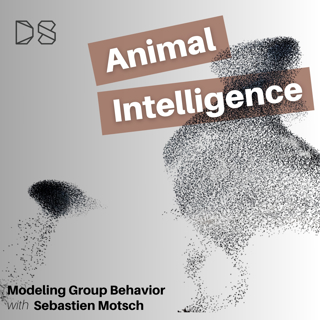
Modeling Group Behavior
Our guest in this episode is Sebastien Motsch, an assistant professor at Arizona State University, working in the School of Mathematical and Statistical Science. He works on modeling self-organized biological systems to understand how complex patterns emerge.
8 Huhti 202440min
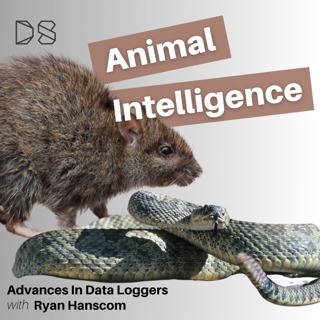
Advances in Data Loggers
Our guest in this episode is Ryan Hanscom. Ryan is a Ph.D. candidate in a joint doctoral evolution program at San Diego State University and the University of California, Riverside. He is a terrestrial ecologist with a focus on herpetology and mammalogy. Ryan discussed how the behavior of rattlesnakes is studied in the natural world, particularly with an increase in temperature.
25 Maalis 202435min
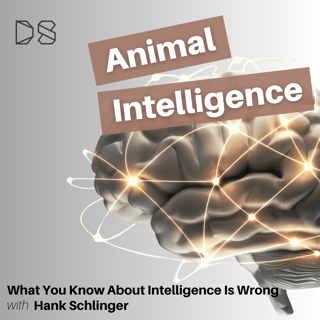
What You Know About Intelligence is Wrong (fixed)
We are joined by Hank Schlinger, a professor of psychology at California State University, Los Angeles. His research revolves around theoretical issues in psychology and behavioral analysis. Hank establishes that words have references and questions the reference for intelligence. He discussed how intelligence can be observed in animals. He also discussed how intelligence is measured in a given context.
20 Maalis 202441min
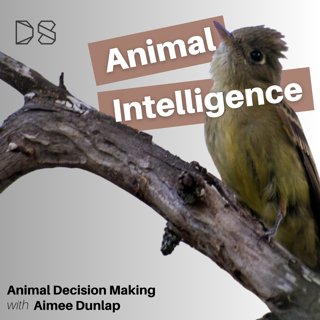
Animal Decision Making
On today's episode, we are joined by Aimee Dunlap. Aimee is an assistant professor at the University of Missouri–St. Louis and the interim director at the Whitney R. Harris World Ecology Center. Aimee discussed how animals perceive information and what they use it for. She discussed the connection between their environment and learning for decision-making. She also discussed the costs required for learning and factors that affect animal learning.
12 Maalis 202437min
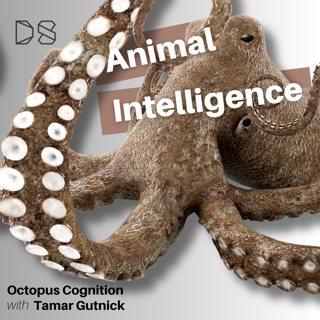
Octopus Cognition
We are joined by Tamar Gutnick, a visiting professor at the University of Naples Federico II, Napoli, Italy. She studies the octopus nervous system and their behavior, focusing on cognition and learning behaviors. Tamar gave a background to the kind of research she does — lab research. She discussed some challenges with observing octopuses in the lab. She discussed some patterns observed by the octopus lifestyle in a controlled setting. Tamar discussed what they know about octopus intelligence. She discussed the octopus nervous system and why they are unique compared to other animals. She discussed how they measure the behavior of octopuses using a video recording and a logger to track brain activity.
8 Maalis 202438min
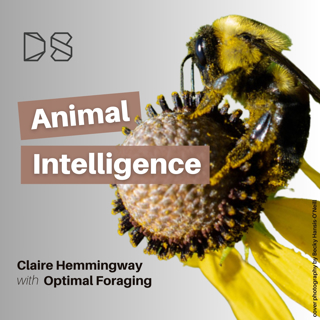
Optimal Foraging
Claire Hemmingway, an assistant professor in the Department of Psychology and Ecology and Evolutionary Biology at the University of Tennessee in Knoxville, is our guest today. Her research is on decision-making in animal cognition, focusing on neotropical bats and bumblebees. Claire discussed how bumblebees make foraging decisions and how they communicate when foraging. She discussed how they set up experiments in the lab to address questions about bumblebees foraging. She also discussed some nuances between bees in the lab and those in the wild. Claire discussed factors that drive an animal's foraging decisions. She explained the foraging theory and how a colony works together to optimize its foraging. She also touched on some irrational foraging behaviors she observed in her study. Claire discussed some techniques bees use to learn from past behaviors. She discussed the effect of climate change on foraging bees' learning behavior. Claire discussed how bats respond to calling frogs when foraging. She also spoke about choice overload in that they make detrimental decisions when loaded with too many options.
28 Helmi 202438min
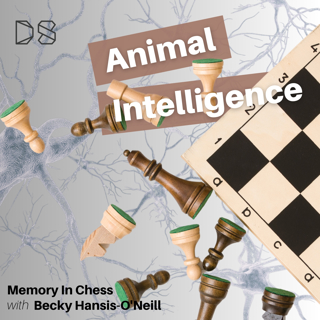
Memory in Chess
On today's show, we are joined by our co-host, Becky Hansis-O'Neil. Becky is a Ph.D. student at the University of Missouri, St Louis, where she studies bumblebees and tarantulas to understand their learning and cognitive work. She joins us to discuss the paper: Perception in Chess. The paper aimed to understand how chess players perceive the positions of chess pieces on a chess board. She discussed the findings paper. She spoke about situations where grandmasters had better recall of chess positions than beginners and situations where they did not. Becky and Kyle discussed the use of chess engines for cheating. They also discussed how chess players use chunking. Becky discussed some approaches to studying chess cognition, including eye tracking, EEG, and MRI. ## Paper in Focus Perception in chess ## Resources Detecting Cheating in Chess with Ken Regan
12 Helmi 202448min
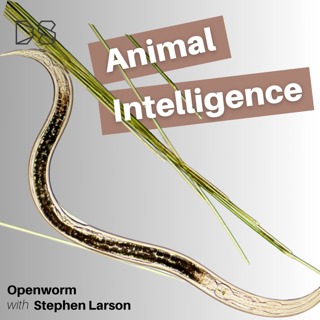
OpenWorm
On this episode, we are joined by Stephen Larson, the CEO of MetaCell and an affiliate of the OpenWorm foundation. Stephen discussed what the Openworm project is about. They hope to use a digital C. elegans nematode (C. elegans for short) to study the basics of life. Stephen discussed why C. elegans is an ideal organism for studying life in the lab. He also discussed the steps involved in simulating a digital organism. He mentioned the constraints on the cellular scale that informed their development of a digital C. elegans. Stephen discussed the validation process of the simulation. He discussed how they discovered the best parameters to capture the behavior of natural C. elegans. He also discussed how biologists embraced the project. Stephen discussed the computational requirements for improving the simulation parameters of the model and the kind of data they require to scale up. Stephen discussed some findings that the machine-learning communities can take away from the project. He also mentioned how students can get involved in the Openworm project. Rounding up, he shared future plans for the project.
5 Helmi 202434min






















